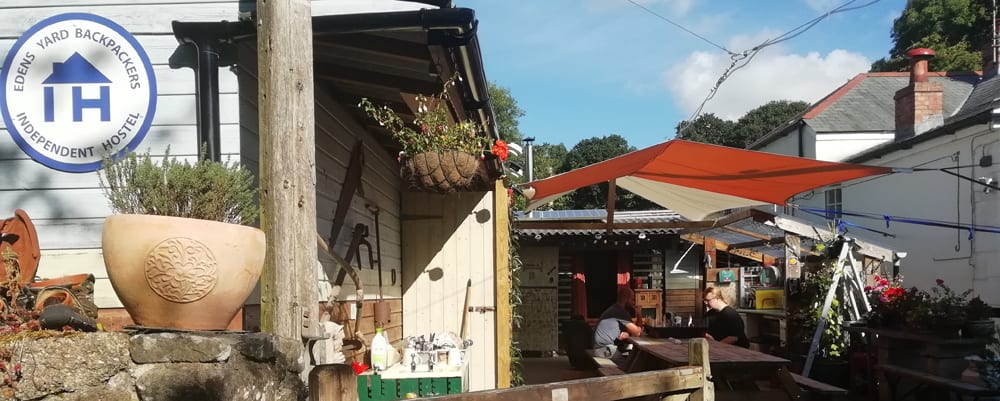England : Bunkhouses, hostels, bunkbarns and camping barns
View all hostels & bunkhouses
Staying in English independent hostels, bunkhouses and camping barns is a great way to tour England on a budget. Self-catering accommodation with stays as short as one night enables couples, individual travellers and families to experience landscapes as varied as the North Norfolk Coast, the Lake District and Cornwall right up to Northumberland. The cities are also well provided for with boutique hostels and backpackers providing great value city centre accommodation. English bunkhouses and hostels also provide ideal accommodation for groups, particularity those looking for outdoor activity breaks, with sole use of large kitchens and dining rooms. There are nearly 200 privately run English hostels in the Independent Hostels UK network, providing accommodation in England’s classic countryside, National Parks and historic towns and cities.
English bunkhouses and hostels
History of Hostels and Bunkhouses in England
The idea of the Youth Hostel was first developed in England in the late 1920s with Youth Hostel Association (YHA) being formed in 1930. The YHA’s aim was to encourage access to the best of our English countryside for young people from the industrial cities. The network of YHA hostels was designed such that each hostel was a day’s cycling distance apart. The hostels developed by the YHA provided low-cost self-catering accommodation in some of England’s most iconic locations.
Throughout the 20th century, the YHA developed into a countrywide network with links to Hostelling International (HI). However, the impact of the loss of visitors to the countryside as a result of the 2001 Foot and Mouth outbreak resulted in a change of direction for the charity. Since then the YHA has concentrated on larger more accessible hostels in cities and honeypot locations.

The Independent Hostel Network
Throughout this time the English Independent Hostel network, which began in the surfing towns of Cornwall and the walking areas of England, has grown. Independent hostels have sprung up all over the country, with many ex-YHA hostels being taken on independently by management or local business people. The members all provide great value self-catering hostel and bunkhouse accommodation in all the prime English outdoor locations. There is a high density of independently run hostels and bunkhouses in the English National Parks. This includes The Lake District, The Peak District, The North Yorks Moors, The Yorkshire Dales, and The Northumberland National Park. Many English cities now have independent hostels. These city hostels are often boutique in style and are always in prime city centre locations.
English Bunkhouses and Hostels
When it comes to defining accommodation the line between hostel and bunk house is very blurred. Originally a bunkhouse was more basic than a hostel and was often found in converted farm buildings. Nowadays, however, with modern conversions and mixed usage of the names. There is often very little difference between a hostel and a bunk house. The term camping barns are still mostly retained for very basic accommodation. However in some cases, like Dacres stable situated near Kendal in The Lake District, the term camping barn has been used to name accommodation that could just have easily been called a hostel or bunkhouse. One thing we do know is that it was once a stable!

Accommodation for Groups.
All the hostels and bunkhouses in England are well equipped to provide self-catering accommodation for groups, with large kitchen pans and dining areas to accommodate the entire group. You can send an enquiry to a list of hostels and bunkhouses with exactly the facilities your group requires, using our group accommodation enquiry service.

Touring England and Independent Travel.
There are now independent hostels in many tourist towns and cities of England. Many other independent hostels are in wild areas of the National Parks or along Long Distance Trails. They are surrounded by stunning scenery. English independent hostels are a great resource for those touring England by car, by bike, or on public transport. Bunkhouse and hostels are unique in that they provide self-catering accommodation where you can stay for as short a period as one night. Ideal for touring on a budget. What’s more very many of the hostels and bunkhouses in England have facilities such as drying rooms and bike/canoe storage which are often not available at hotels, B&B’s, or self-catering cottages.
Eco Hostels.
There are a growing number of hostels in England that have embraced sustainable energy and recycling in their business. Look out for the Green Tourism symbol. A stay at an ECO Hostel will educate and inspire you.

Hostels for Adventurers
With so many of the English independent hostels situated in our National Parks and along our magnificent coastline. They are very popular with cyclists, mountain bikers, canoeists, climbers, hill walkers, cavers, surfers, and other watersport enthusiasts. This map is also really useful for those planning to cycle or walk along one of the long-distance routes. You’ll find plenty of hostels along the Coast to Coast Route or Hadrian’s Wall path.
Hostels for Wilderness and Tranquility
There are other hostels and bunkhouses situated in some of the truly wildest parts of England. Some can only be accessed on foot, like Skiddaw House which sits at 1550ft on a mountainside near Keswick, Cumbria. Some don’t have electricity, never mind a mobile signal, and others are situated in the Dark Sky Parks of Northumberland and Exmoor. Perfect for those who want to escape from modern living for a few days.





















